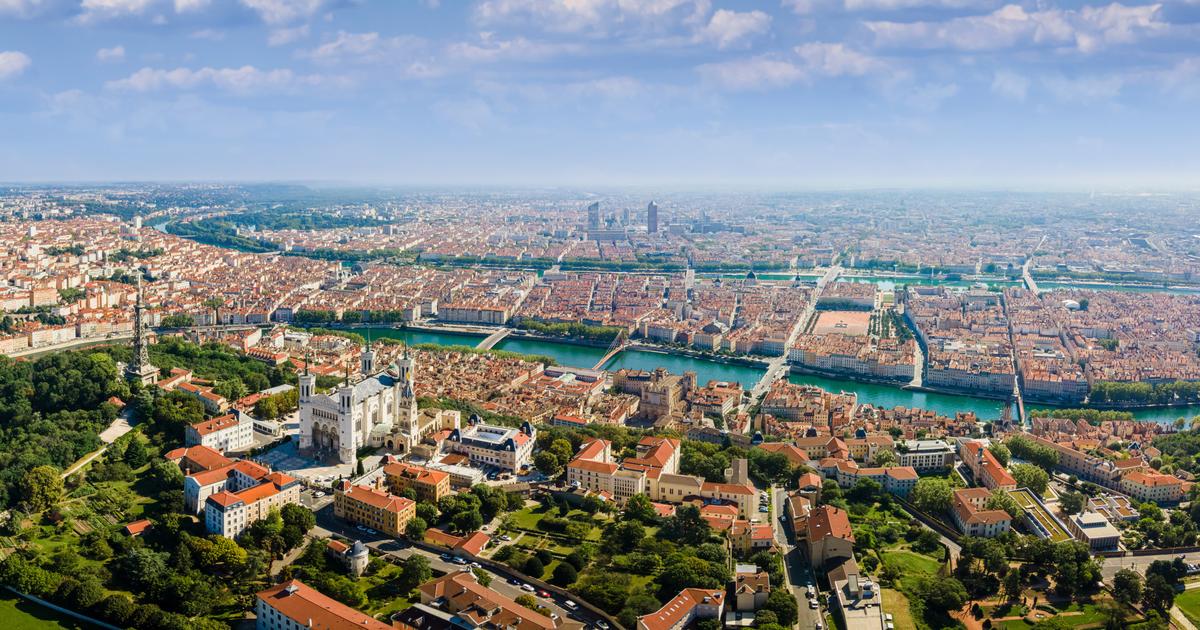Turkey is a diverse country with an eventful history that has developed into one of the most popular holiday destinations in the last few decades.
Turkish policy towards the West has caused tension in recent years.
Modern
Turkey
emerged from the Ottoman Empire in 1923.
In ancient times the country belonged to the Greek sphere as Asia Minor.
Tourism is an important source of income for the
state
.
Ankara -
Turkey
is a
state
full of contrasts, not least
due to the country's
unique
geography
: In the far west lies the modern, economically strong mega-metropolis of Istanbul on European territory, while the mountainous southeastern Anatolia is very traditional and agricultural.
Turkey: The Early History
More than a million years ago, early humans like Homo erectus and Neanderthals settled in what is now
Turkey
.
From around 1600 BC
The first modern civilizations such as the Hittite Empire in Central Anatolia emerged.
Greeks settled mainly along the coast of the Aegean Sea, among others in Halicarnassus (today's Bodrum) and in Miletus.
The legendary Troy was also on Turkish soil.
Its ruins are now one of the most popular tourist destinations in Turkey.
Again and again, Anatolia was the scene of armed conflicts.
Among the conquerors were the Persians under King
Cyrus II
and
Alexander the Great
.
Under his rule in the 4th century BC
Cities
like Pergamon and Ephesus
experienced
their greatest heyday.
Via an inheritance, the region later fell to the Romans without a fight, who named their new province Asia Minor (Asia Minor).
Turkey in the Middle Ages
With the fall of the Roman Empire, the area of
Turkey became
part of the Christian Eastern Roman Empire with the capital Byzantium (Istanbul).
At this time the term Anatolia was first mentioned in writing.
It is derived from the Greek Anatolé for the Orient.
At the same time, the rise of the Turk, a nomadic tribe from the Altai Mountains, began in Central Asia.
Since the Turks controlled large stretches of the Silk Road, the Byzantines formed an alliance with them that was directed against the common enemy Persia.
But it was not until the 11th century that the Turkish princes of the Seljuq dynasty conquered large parts of the peninsula that now makes up Turkey.
They also brought Islam to Anatolia.
Under its rulers: With the decline of the Seljuks, the rise began shortly after another Turkic people
Osman I
.
it established the Ottoman Empire.
Turkey and the Ottoman Empire
After the first battle of the Ottomans against the Byzantine Empire in 1302, an unprecedented campaign of conquest began.
A turning point in
history
was the conquest of Constantinople (Byzantium / Istanbul) in 1451. Under Sultan
Suleyman the Magnificent
, the Ottoman Empire experienced its greatest heyday and expansion.
It reached far beyond
Turkey
to Libya and Egypt in the south and to the Caspian Sea and the Persian Gulf in the east.
In the north, the Ottomans penetrated across the Danube to Hungary.
Vienna was besieged twice: in 1529 and 1683. At this point, however, the Ottoman Empire was already weakened and was pushed back further and further south in the following centuries.
Turkey as a modern state
In the 19th century, the Ottoman Empire gradually lost Serbia, Romania, Greece and Bulgaria, which declared themselves independent.
European powers increased their influence in the Middle East and de facto took over power in Egypt.
Further territories were lost in the Balkan Wars of 1912 and 1913 and the Ottomans were
pushed
into the borders of today's
Turkey
.
In the First World War they joined the German Reich and Austria-Hungary and paid with heavy losses.
The country was occupied by the victorious powers.
In 1919 the Turkish nationalists' war of independence
against the western occupiers
began under the leadership of
Mustafa Kemal Pascha
.
This ended in 1922 with an armistice and the end of the sultanate.
Mustafa Kemal
proclaimed the Turkish Republic on October 29, 1923.
He even went as
Ataturk
(Father of the Turks) in the
history of
one.
Under him the
state was
modernized and secularized.
The Turkish
language
was henceforth written in Latin instead of Arabic.
Turkey today
After the Second World War,
Turkey turned
further west for fear of Soviet influence and joined NATO.
The first association income with the EEC (later the EU) was concluded as early as 1963.
Thousands of Turkish guest workers emigrated to Western Europe.
When Cyprus was about to join Greece in 1974, the Turkish Prime Minister
Bülent Ecevit sent
troops to the island to protect the Turkish minority.
This led to the dichotomy that continues to this day.
The
Turkish Republic of Northern Cyprus
,
proclaimed in 1983, has
never been recognized internationally.
The Kurdish conflict broke out in public for the first time in the 1980s.
Since then, the
PKK
(Kurdistan Workers' Party) has been fighting in vain for an independent Kurdish
state
in eastern Turkey.
When
Recep Tayyip Erdoğan came to power in
2003, Turkish
politics
began to regress,
with restrictions on freedom of the press and creeping Islamization, which above all led to a worse position of the female
population
and to conflicts with the West.
Turkey and its politics
In the past few years, several constitutional amendments have been made, which
assured
President
Recep Tayyip Erdoğan
of the AKP more power in the
state
.
The Grand National Assembly is the parliament of Turkey.
The 600 parliamentarians are directly elected by the people.
The distribution of seats in summer 2020:
Justice and Recovery Party (AKP) |
291 |
Republican People's Party (CHP) |
138 |
Democratic Party of the Peoples (HDP) |
58 |
Nationalist Movement Party (MHP) |
37 |
Good party (İYİ) |
37 |
Workers' Party of Turkey (TİP) |
2 |
Great Unity Party (BBP) |
1 |
Party for Democracy and Progress (DEVA) |
1 |
Democratic Party (DP) |
1 |
Democratic Party of Regions (DBP) |
1 |
Party of Bliss (SP) |
1 |
Independent MPs |
6 |
Turkey: population and language
The
population
of
Turkey
has grown rapidly since the founding of the modern republic.
In 1927 a little more than 13.5 million people lived in the
state
; today there are almost 80 million.
Not many are left of the minorities that used to be at home in the Ottoman Empire.
Official statistics on the population structure do not exist.
In 2008 a study for the National Security Council found the following data:
rank |
group |
population |
1 |
Turks |
55 million |
2 |
Kurds |
9.6 million |
3 |
Zaza |
3 million |
4th |
Circassian |
2.5 million |
5 |
Bosniaks |
2 million |
Recognized minorities are the Armenians (approx. 60,000), Jews (approx. 16,000) and Greeks (approx. 4,000).
Although these are officially equal, the Christian Armenians in particular suffer from severe discrimination.
Some minorities like the Kurds are not recognized as such.
The only official
language in
the country is Turkish.
About 80 percent of the population speak it as their mother tongue.
There are also a number of minority languages, of which Kurmanji (Northern Kurdish) is by far the most important with around 14 million speakers.
99 percent of the population are Muslims.
Turkey: geography and cities
The
geography
of Turkey is shaped by mountains and seas.
The western Aegean coast and the southern Mediterranean coast are among the most popular tourist destinations in Europe.
The northern Black Sea coast is mainly used for agriculture.
The inland is dominated by plateaus and mountains.
Most famous is Cappadocia with its caves and rock churches.
The country's highest mountains such as the 5,137 meter high Ararat can be found in eastern Turkey.
A myth has it that Noah's ark was stranded on his flank after the Flood.
The largest
cities
in Turkey at a glance:
rank |
city |
population |
1 |
Istanbul |
13.120.596 |
2 |
Ankara |
4,431,719 |
3 |
Izmir |
3,354,934 |
4th |
Bursa |
1,905,570 |
5 |
Adana |
1,591,518 |
As many as 15.5 million people live in the Istanbul metropolitan area.
By far the largest city in Turkey extends over two continents (Europe and Asia) and borders two seas (Black Sea and Mediterranean).
This makes it a major transport hub.
In addition, it is one of the most visited cities in Europe for tourism, with around 14 million visitors per year.
It is considered the liberal economic and cultural center of Turkey.















